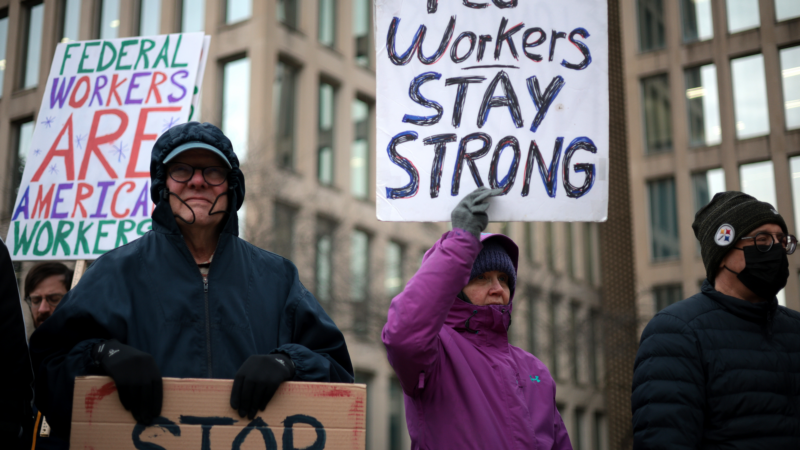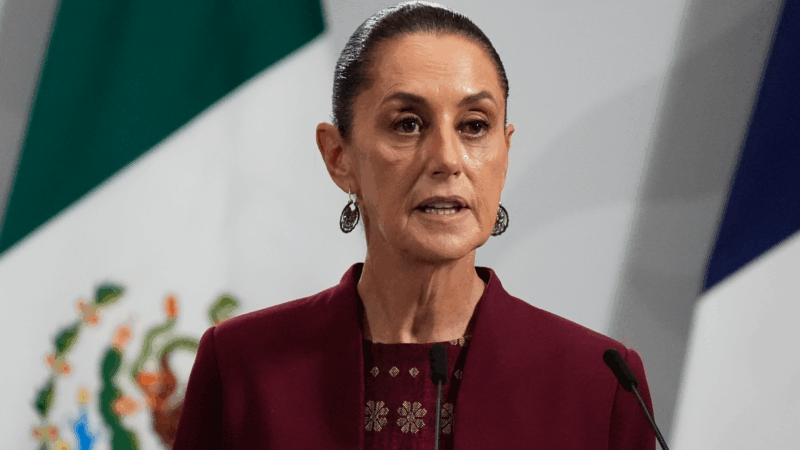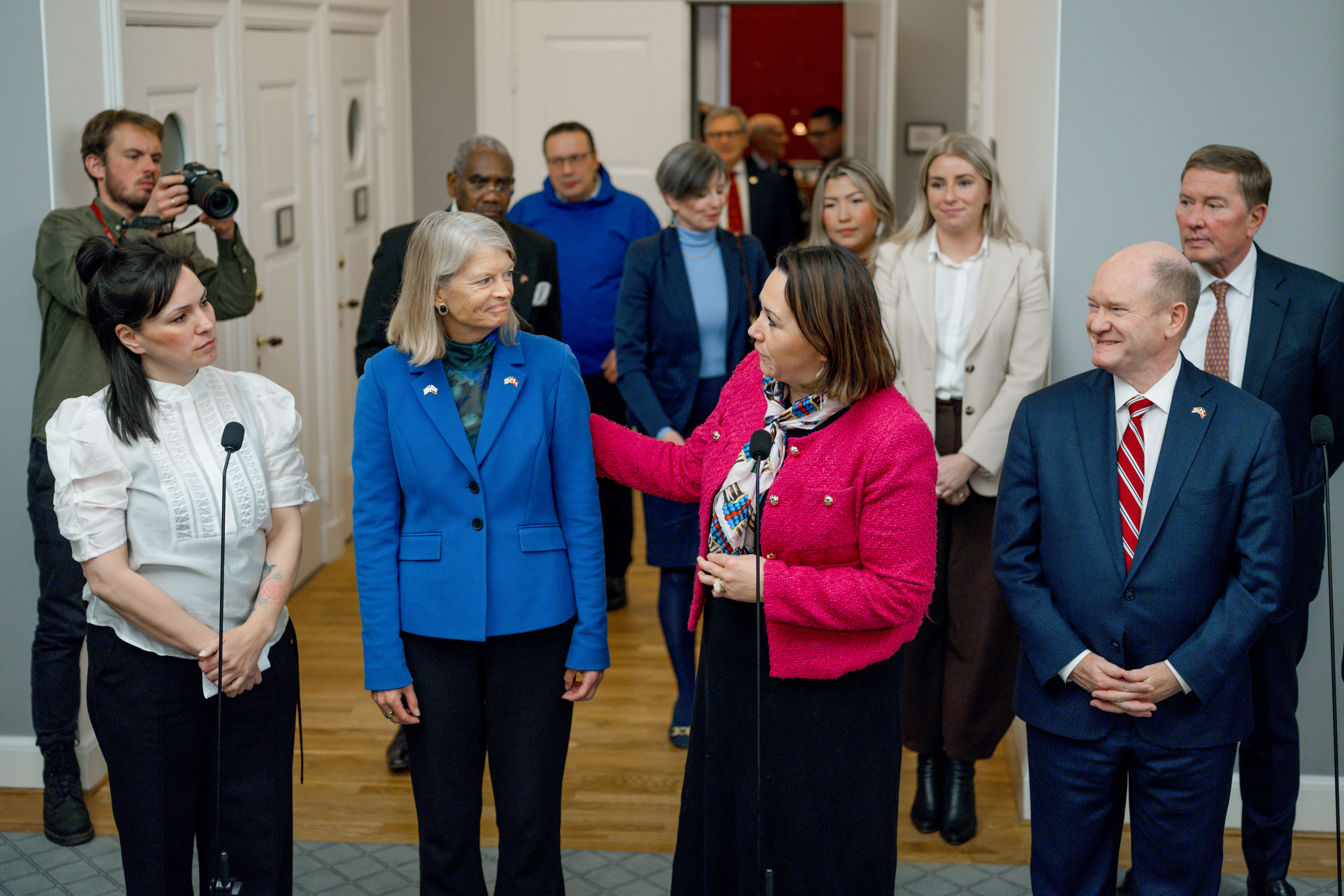Trump’s ‘Fork in the Road’ resignation offer to federal workers is in judge’s hands
This is a developing story that will be updated.
The resignation offer to federal employees known as a “Fork in the Road” is now in a judge’s hands.
U.S. District Judge George O’Toole heard arguments for about an hour Monday afternoon. He is expected to issue a decision soon on whether the Trump administration’s deferred resignation program for federal employees can go forward.
The hearing, in a federal courtroom in Boston, came nearly two weeks after the U.S. Office of Personnel Management (OPM) sent an email to more than 2 million civilian employees of the federal government with the subject line “Fork in the Road.” Originally, it gave federal employees just nine days to decide their fates.
The OPM email, similar to one Trump adviser Elon Musk sent to Twitter employees after he bought the company in 2022, gave government workers a choice: They could stay or leave, but if they stayed, their jobs would not be guaranteed. Moreover, those who stayed would face “significant” reforms, including layoffs, a return to office, and an expectation that they be “loyal.”
If they leave, OPM said, the expectation was that they could stay on the government’s payroll until the end of September.
Last Thursday, O’Toole ordered the government to extend the Feb. 6 deadline for employees to accept the offer so that he could hear arguments in the case. The current deadline is 11:59 pm tonight, Monday.
As of Friday, about 65,000 federal employees, roughly 3% of the federal workforce, had agreed to resign, according to the Trump administration.
Unions sued, calling the resignation offer unlawful, arbitrary and capricious
The legal group Democracy Forward filed a lawsuit on Feb. 4 on behalf of labor unions representing more than 800,000 civil servants. It alleges that the Trump administration’s resignation offer is unlawful, as well as “arbitrary and capricious in numerous respects.”
The unions argue that OPM exceeded its authority in promising pay and benefits through the end of September, given funding for most federal agencies expires on March 14. A law known as the Antideficiency Act prohibits federal agencies from obligating any spending that has yet to be approved by Congress.
The unions further contend that the offer fails to consider possible adverse consequences to the government’s ability to function; sets an arbitrarily short deadline; and is pretext for removing and replacing workers on an ideological basis, among other things.
In court today, the unions’ attorney Elena Goldstein described the resignation offer as “explosive” and something OPM seemed to be making up as they went along.
The unions have pointed to the chaotic and confusing rollout of the “Fork directive.” Over the last two weeks, the government sent a barrage of emails to federal employees, including those who were originally told they were excluded from the deal, with conflicting information about their rights and obligations should they agree to resign.
“This guidance continues to shift in a way that obscures the true nature of the Directive from Plaintiffs, federal employees, and the public,” the unions’ attorneys wrote in their complaint.
The government argues the “Fork” offer is lawful
Meanwhile, Department of Justice attorney Eric Hamilton called the offer a “humane offramp” for federal employees who don’t want to deal with the uncertainty that lies ahead for the federal workforce, as Trump — guided by Musk’s government efficiency team — executes a major overhaul.
Hamilton also argued a point raised in the government’s brief filed last week, that Congressional approval for the deferred resignation program is unnecessary, “because employees would remain in duty status and entitled to their regular pay and benefits” until Sept. 30. The brief noted that no additional compensation had been offered.
Additionally, the government argued that the resignation offer is not a “final agency action” and therefore not subject to judicial review.
“It is a matter of pure internal governmental administration,” the government’s attorneys wrote in the brief.
They rejected the claim that the “Fork” offer is coercive, and appeared to be trying to shift legal responsibility away from OPM and toward employees who accept the offer.
“That email announcing the voluntary resignation program does not determine any rights or obligations, and no legal consequences flow from the program itself. Rather, any legal consequences would flow from a federal employee’s choice in accepting the voluntary resignation offer,” the government’s attorneys wrote. “The voluntary resignation program ‘does not require anyone to do anything.'”
The government argued that another pause the deadline would inject further uncertainty for federal workers and disrupt a “critical priority” of the Trump administration — to reform the federal workforce.
Attorneys general warn of devastating impact on American public
Democratic attorneys general from 20 states and the District of Columbia filed a brief Sunday in support of the unions’ lawsuit, asserting that the resignation offer “would have a devastating impact on states’ ability to respond to natural disasters, support veterans, and deliver crucial services to millions of Americans.”
“Without the work of thousands of federal employees, communities across the country will suffer,” said New York Attorney General Letitia James in a statement.
On Monday, O’Toole ordered that brief, along with others filed, deleted from the docket, writing, “While there may be no positive rule forbidding it, in my judgment a trial court generally should not receive nor consider volunteered submissions by non-parties except as may be specifically authorized by statute or other authority.”
The federal government is the biggest employer in the U.S., with 80% of civilian employees working at military bases and in government offices outside the Washington D.C. region.
WBUR’s Walter Wuthmann contributed to this story.
Italian fashion designer Valentino dies at 93
Garavani built one of the most recognizable luxury brands in the world. His clients included royalty, Hollywood stars, and first ladies.
Sheinbaum reassures Mexico after US military movements spark concern
Mexican President Claudia Sheinbaum quelled concerns on Monday about two recent movements of the U.S. military in the vicinity of Mexico that have the country on edge since the attack on Venezuela.
Trump says he’s pursuing Greenland after perceived Nobel Peace Prize snub
"Considering your Country decided not to give me the Nobel Peace Prize… I no longer feel an obligation to think purely of Peace," Trump wrote in a message to the Norwegian Prime Minister.
U.S. lawmakers wrap reassurance tour in Denmark as tensions around Greenland grow
A bipartisan congressional delegation traveled to Denmark to try to deescalate rising tensions. Just as they were finishing, President Trump announced new tariffs on the country until it agrees to his plan of acquiring Greenland.
Can exercise and anti-inflammatories fend off aging? A study aims to find out
New research is underway to test whether a combination of high-intensity interval training and generic medicines can slow down aging and fend off age-related diseases. Here's how it might work.
Trump has rolled out many of the Project 2025 policies he once claimed ignorance about
Some of the 2025 policies that have been implemented include cracking down on immigration and dismantling the Department of Education.








